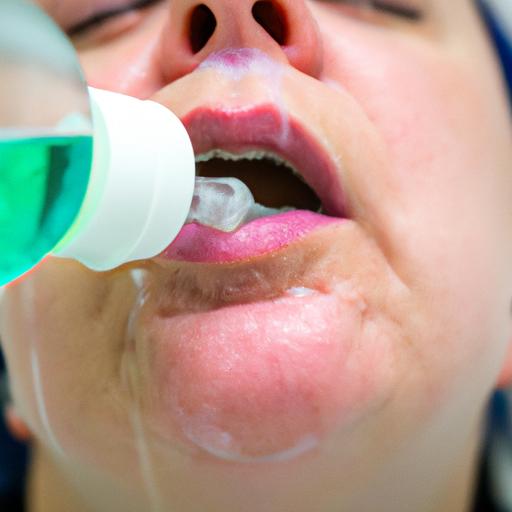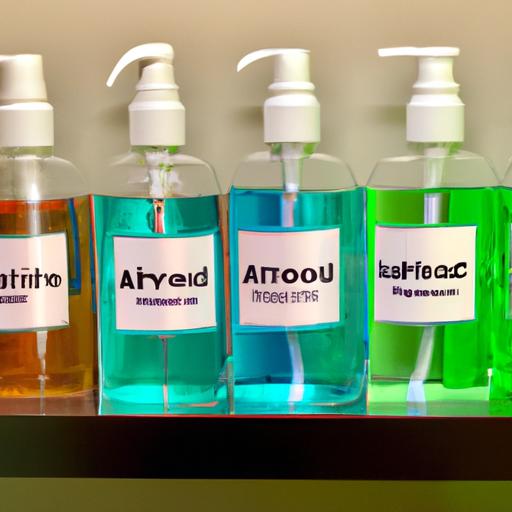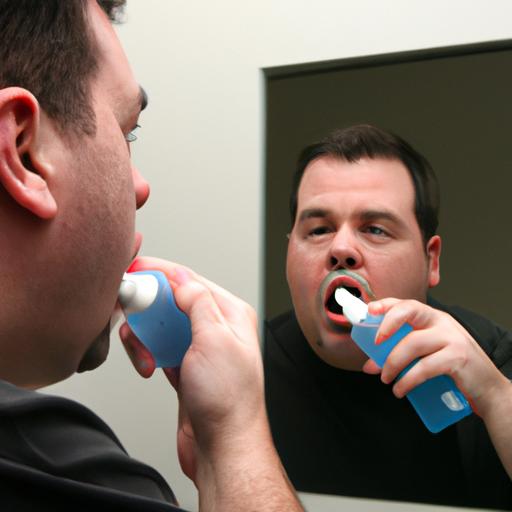Discover the importance of using Mouthwash for oral hygiene during chemotherapy. Learn how to choose the right one and get essential tips for optimal usage.
Chemotherapy, a powerful treatment for cancer, can have detrimental effects on oral health. The side effects of chemotherapy often include dry mouth, mouth sores, and changes in taste. However, maintaining proper oral hygiene during this challenging time is essential to prevent further complications. One effective tool in this regard is mouthwash. In this article, we will explore the benefits of using mouthwash for oral hygiene during chemotherapy, provide guidance on choosing the right product, and offer essential tips for its optimal usage.
Introduction to the Importance of Oral Hygiene during Chemotherapy
Chemotherapy affects not only the cancer cells but also the healthy cells in our body, including those in the mouth. This can lead to a range of oral health issues, such as increased vulnerability to infections, gum disease, and tooth decay. It is crucial to prioritize oral hygiene during chemotherapy to minimize these risks and maintain overall well-being.

Using mouthwash can help alleviate the adverse effects of chemotherapy on oral health.
Understanding the Benefits of Mouthwash for Oral Hygiene during Chemotherapy
Mouthwash plays a vital role in maintaining oral health during chemotherapy. It offers several benefits that help alleviate the adverse effects of treatment. Firstly, mouthwash helps combat dry mouth, a common side effect of chemotherapy. Dry mouth not only causes discomfort but also increases the risk of dental complications. Mouthwash helps moisturize the mouth and provides temporary relief from dryness.
Secondly, mouthwash can aid in managing mouth sores, another prevalent side effect. Rinsing with a suitable mouthwash can soothe the sores, reduce inflammation, and promote faster healing. Additionally, mouthwash can help control bacterial growth, preventing infections in the mouth.

It is crucial to choose an alcohol-free mouthwash for individuals undergoing chemotherapy.
Choosing the Right Mouthwash for Chemotherapy Patients
Selecting the appropriate mouthwash for individuals undergoing chemotherapy is crucial. Not all mouthwashes are created equal. Here are some factors to consider when choosing a mouthwash tailored to the needs of cancer patients:
1. Alcohol-free Formula
Chemotherapy often causes oral sensitivity, making it important to opt for an alcohol-free mouthwash. Alcohol-based mouthwashes can cause dryness and irritation, aggravating the already existing discomfort.
2. Moisturizing Properties
Look for mouthwashes that offer moisturizing properties to combat the dry mouth associated with chemotherapy. Ingredients like glycerin, aloe vera, and natural oils can help hydrate the mouth, providing relief from dryness.
3. Antimicrobial Action
Chemotherapy weakens the immune system, making the mouth more susceptible to infections. Choose a mouthwash with antimicrobial properties to help control bacteria and reduce the risk of oral infections.
4. Mild and Gentle Formulation
Chemotherapy can cause oral sensitivity, making it essential to select a mouthwash with a mild and gentle formulation. Harsh chemicals and strong flavors can further irritate the mouth and worsen discomfort.

Following best practices ensures effective usage of mouthwash during chemotherapy treatment.
Best Practices and Tips for Using Mouthwash during Chemotherapy
Now that you have chosen the right mouthwash, it is crucial to know how to use it effectively for optimal oral hygiene. Here are some best practices and tips to keep in mind:
1. Follow a Consistent Routine
Establishing a regular oral care routine is essential during chemotherapy. Incorporate mouthwash into your daily regimen by using it after brushing and flossing. This helps ensure a thorough clean and maximum benefit from the mouthwash.
2. Dilute if Necessary
If the mouthwash feels too strong or causes discomfort, consider diluting it with water. This can make it more tolerable while still providing the desired benefits.
3. Swish and Spit
Pour the recommended amount of mouthwash into a cup and swish it around your mouth for the specified duration. Be sure to cover all areas, including the gums, tongue, and cheeks. Afterward, spit out the mouthwash, ensuring not to swallow it.
4. Stay Hydrated
In addition to using mouthwash, it is crucial to stay hydrated during chemotherapy. Sip water frequently to alleviate dry mouth and maintain moisture levels in the mouth.
5. Consult with Your Healthcare Team
Always consult with your healthcare team, including your oncologist and dentist, before incorporating any new oral care products into your routine. They can provide personalized advice and recommend specific mouthwashes based on your needs.
In conclusion, maintaining proper oral hygiene during chemotherapy is essential for overall well-being. Mouthwash serves as a valuable tool in managing the oral side effects of treatment. By choosing the right mouthwash and following best practices, individuals undergoing chemotherapy can alleviate discomfort, reduce the risk of complications, and maintain a healthy oral environment. Remember, consult with your healthcare team for personalized advice and recommendations.
For more information on mouthwash and its benefits during chemotherapy, you can visit the following resources: Best Water Flosser HQ – Mouthwash, Mouthwash for Chemotherapy-Related Dry Mouth, Mouthwash for Chemotherapy-Induced Nausea, Mouthwash for Chemotherapy-Induced Taste Changes.




